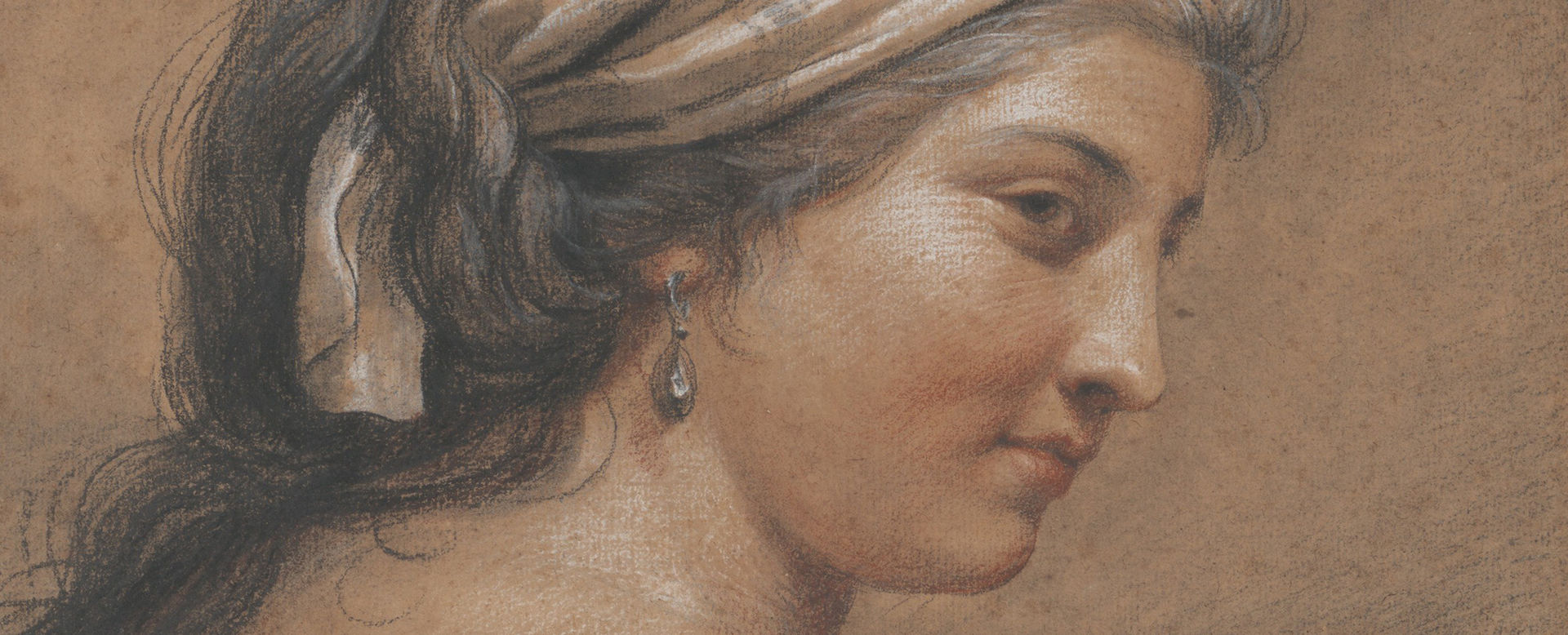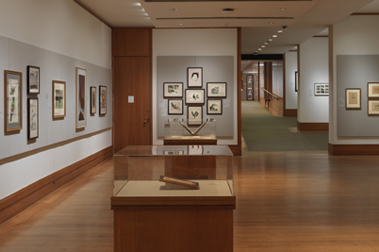Returned to lender The Met accepts temporary loans of art both for short-term exhibitions and for long-term display in its galleries.
The Death of Socrates
Jacques Louis David French
Not on view
In the early 1780s, David would often brainstorm ideas for paintings without a specific commission in mind. Here, he depicts Socrates, the ancient Greek philosopher convicted of "impiety" against the traditional religion by the Athenian courts. Rather than renounce his beliefs, Socrates prepares to drink the poison hemlock, but pauses to address his distressed disciples.
The drawing is a layered construction, worked with apparent urgency and revealing a sequence of ideas and revisions. Even after sketching the figures in black chalk and modeling them in gray wash, David reduced the size of the doorway in the angled wall and altered the pose and scale of the seated figure holding the book, in both cases by pasting irregularly shaped pieces of paper onto the sheet and redrawing those areas.
This image cannot be enlarged, viewed at full screen, or downloaded.



